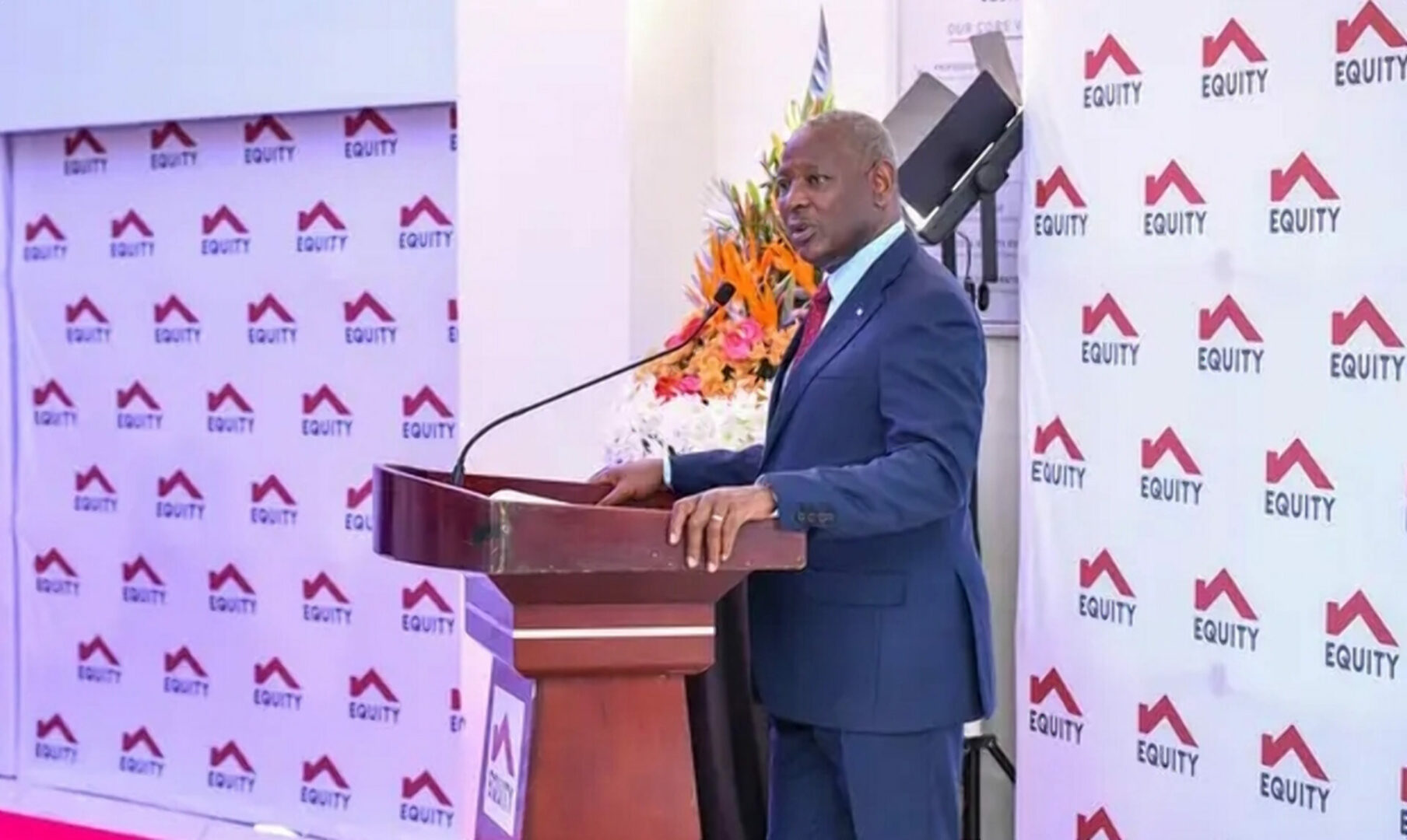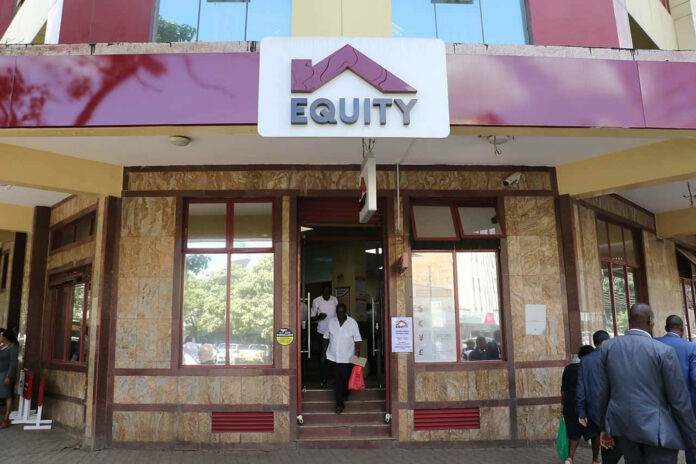When the story of the African banking revolution is told, the Equity Bank will take the prestigious honour of the bank that refused to quack like a duck and soared like an eagle.
Like an eagle’s precision, strategy, boldness and resilience, it is with these attributes that Equity has revolutionized banking and access to banking services in Kenya and the region.
When the bank started in 1984 as the Equity Building Society, not too many in the financial industry would have imagined how transformative it would become.
“In the 80s, 90s and early 2000s, banking was reserved for the moneyed blue-collar citizen. The common man was not very well accepted inside banking halls. Millions of people banked with the age-old piggy banks. This was the status quo that Equity endeavoured to change,” says Jackson Mwaura, a financial consultant and securities and investments analyst.
Mwaura reckons that because Equity opened its arms to those considered “un-bankable”, its lifeline was not long-lasting. But alas, the eagle had taken off! Today, this bank is the largest lender in the East African region.
Equity Bank CEO James Mwangi on how to make your business successful
This financial year, this bank is expected to break the ceiling by becoming the first bank in Kenya and Eastern Africa to record over Sh—50 billion in net profit.
Equity’s profitability journey goes back to 1994 when it registered its first profit before tax of Sh. 7 million. This has since grown to record-breaking levels. For instance, in its latest financial results for the full year period December 30, 2023, Equity Bank Group recorded a Sh43.7 billion growth in net earnings.
This saw the bank propose a record dividend of Sh. 15.1 billion for a second year running.
“The Sh. 4 per share dividend amounts to a 36 per cent payout of the Sh.43.7 billion profit after tax or Sh. 11.1 earnings per share and dividend yield of 11.9 per cent on the 2023 year-end closing share price of Sh.33.65 or 800 per cent on par value,” said Dr. James Mwangi, the Group Managing Director and chief executive officer.
In this period, total assets grew to Sh. 1.822 trillion up from Sh. 428.1 billion as shareholders’ funds grew to Sh. 218.1 billion up from Sh. 72.1 billion.
Net interest income grew by 21 per cent to Sh. 104.2 billion up from Sh. 86 billion while non-funded income registered an impressive 30 per cent growth to Sh. 75.9 billion up from Sh. 58.3 billion.
Gross trade finance revenue grew by 90 per cent to Sh. 11 billion from Sh. 5.8 billion driven by a 106 per cent growth of trade finance related lending and 26 per cent growth of trade finance guarantees and off-balance sheet items.
“We grow by making strategic decisions that focus on supporting our customers to navigate and survive the difficult and challenging microeconomic environment. This aligns to our true north, our purpose to change lives, give dignity and expand opportunities for wealth creation,” says Dr. Mwangi.

How did Equity get here, you may ask? The revolution of this bank geared up in 2004 when the bank converted into a fully-fledged commercial bank, Equity Bank Limited (EBL).
Two years later, the bank was listed at the Nairobi Securities Exchange. It became the largest bank by market capitalization. Currently, Equity is ranked as the most valuable bank at the Nairobi Securities Exchange with over Sh. 160 billion in market capitalization.
In 2015, the Group commenced operations in the Democratic Republic of Congo by acquiring Pro-credit Bank. This milestone set a benchmark and propelled them towards enhancing its reach and furthering its financial inclusion agenda.
This move aligned with the Equity 3.0 strategy and Was part of the commitment to deepen financial inclusion in Africa. In December 2020, Equity Group crossed the Sh. 1 trillion valuation threshold. This was after it successfully acquired Banque Commerciale Du Congo (BCDC).
“What we have seen is a bank that over time has set itself as a social and economic brand that is not only out to do business but also oriented towards the uplifting of its customers,” says Mwaura. “This has been the blend of the bank’s success recipe that has been a reward.
Everything you need to know about Boostika with Equity and how your business can benefit
Dr. Mwangi adds that bank clients were previously made to feel that their value to the bank was based on their account balance. He explains that Equity changed this by giving banking a human face, such that all customers, regardless of wealth or background, were treated with dignity.
“People are more human than economic. That’s the conclusion I have today—that it’s how you treat them, it’s not what you give them that matters,” he says.
By executing the Equity 3.0 strategy, the Equity Bank Group could leverage on breakthrough technology and innovation to achieve a convergence of financial products and services and a seamless integration of its banking options.
The bulk of Equity’s customers are Kenyans in the small and medium enterprises sector and the majority of the population in the low-income cadre. This has seen Equity roll out banking services and products targeted at small business owners.
According to Dr Mwangi, products for the small and medium enterprises category are designed to grow small businesses besides providing operating capital.
“Our SME funds are tailor-made to act as catalysts and facilitate transformation by increasing long-term funding required to allow micro, small and medium businesses to scale up and increase production,” says Dr. Mwangi.
To date, 2,422,030 women and youth have been trained in financial education, 459,537 micro, small and medium enterprises have been trained in entrepreneurship and a total of Sh. 259.3 billion has been disbursed to 269,081 micro, small and medium businesses under the Young Africa Works Program.
Equity Bank Group’s dedication to uplifting small businesses was crowned in October 2023 when the bank was recognized as Africa’s SME Financier of the Year during the Global SME Finance Awards 2023. These awards were organized by the International Finance Corporation (IFC), the World Bank Group member, and the SME Finance Forum.
“Being the best financier of small and medium enterprises reflects our commitment to continually innovate our financial solutions to cater to the diverse needs of small businesses, individual women, women in groups, and women-led SMEs among others, and to continue to empower them and enable them to foster growth and wealth creation,” said Dr. Mwangi.
In March 2022, Equity Bank Group launched the Africa Recovery and Resilience Plan (ARRP). This plan includes a USD 6 billion war chest for lending to five million businesses. This recovery plan focuses on businesses in agriculture, manufacturing and logistics.
Apart from its internal lending capacity of over USD 4.5 billion, Equity Bank Group has also partnered with development finance institutions providing USD 1.5 billion for lending to small businesses.
“We aspire to impact 5 million borrowing businesses, 25 million individual borrowers and create 25 million direct jobs by 2030,” says Dr. Mwangi.
At the same time, with clarity of the Africa Recovery and Resilience Plan, strong leadership and human capital, strategic positioning in one of the world’s fastest growing regions, a diversified business model across banking, insurance, health, philanthropy, technology and its execution, risk management capabilities, resilience and strong buffers, Equity is now uniquely positioned to deliver on a positive and promising focus to all its stakeholders.








